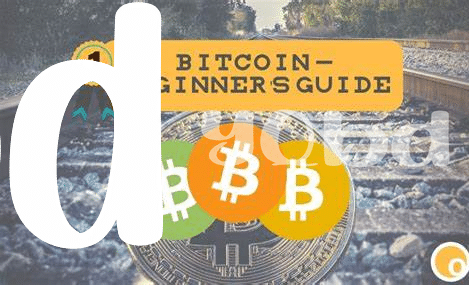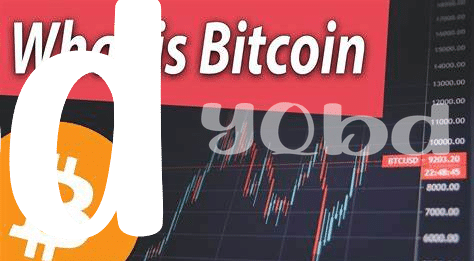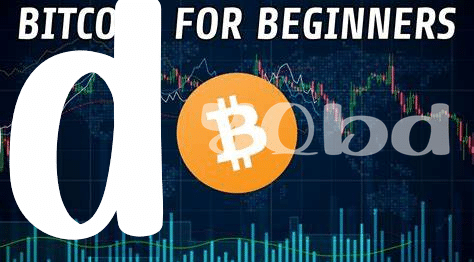What Is Bitcoin? Exploring the Basics 🌟

Imagine a kind of money that isn’t held in your hand or kept in a traditional bank, but instead lives on the internet. This is Bitcoin, a digital form of currency, or ‘cryptocurrency’, that lets you buy things or exchange it much like the dollars or euros, but with a few exciting twists. Created by a person (or group) known as Satoshi Nakamoto in 2009, Bitcoin broke the traditional banking system by operating on a technology called blockchain. Think of blockchain as a digital ledger that securely records all transactions of Bitcoin, like a book that keeps adding pages with stories of where each Bitcoin travels. Unlike regular money, there’s a limited supply of Bitcoin, ensuring it doesn’t lose value from overproduction. It’s like having only so many gold coins in the entire world, making them rare and potentially more valuable over time. Let’s dive into how simply fascinating Bitcoin is, unraveling its mystery bit by bit.
| Term | Explanation |
|---|---|
| Bitcoin | Digital or ‘virtual’ currency that operates independently of a central bank |
| Blockchain | A technology that records all Bitcoin transactions in a secure, chronological, and public manner |
| Satoshi Nakamoto | The pseudonym of the person or group who created Bitcoin |
How Does Bitcoin Work? a Simple Guide ⚙️
Imagine a world where you can send money to anyone across the globe without waiting in long lines at the bank or paying hefty fees. That’s the magic of Bitcoin. At its core, Bitcoin is like online cash – but much smarter. It’s a form of money that’s entirely digital, and you can use it to buy things or send it to people, just like you would with the cash in your wallet. But unlike regular cash, Bitcoin operates on a network of computers that securely track all transactions. It’s like having a ledger that cannot be tampered with, ensuring every Bitcoin transfer is recorded and safe.
Now, the true wonder of Bitcoin lies in its accessibility and security, powered by something called blockchain technology. Imagine a chain of blocks, where each block is a record of transactions. Once a block is full, it’s added to the chain in a permanent fashion. This technology is like a digital fortress, making it extremely difficult for anyone to mess with your Bitcoins. Moreover, to get a deeper understanding of Bitcoin’s value and its potential in reshaping our financial system, consider exploring https://wikicrypto.news/bitcoin-and-the-future-of-decentralized-finance. Here, you can grasp the essence of Bitcoin’s uniqueness and why it’s more than just digital cash but a revolution in the making.
Buying Bitcoin: Your First Steps 🛒

Getting started with Bitcoin can feel like stepping into a whole new world, but it’s less daunting than it might seem at first! Think of it like setting up a digital wallet, where instead of carrying cash or cards, you hold an online currency. The first step is to choose a place to buy and keep your Bitcoin – this is known as an exchange. Imagine it as a digital marketplace where people can buy, sell, or exchange Bitcoin for other digital currencies or traditional currencies like US dollars. Once you’ve picked an exchange, you’ll create an account, much like signing up for a new email address. The next step involves security; you’ll set up some safety measures, like a strong password and possibly two-factor authentication, to keep your virtual coins safe. Finally, you’re ready to buy. With your account set up and secure, you can use regular money to buy Bitcoin. Watch for the value of Bitcoin to decide when to make your purchase – it’s a bit like playing the stock market, but with digital currency. 🛍️💳🔐
Keeping Your Bitcoin Safe: Security Tips 🔒

Imagine finally owning some digital gold, also known as Bitcoin, but then wake up one day to find it all gone—poof, just like that! Scary, right? Well, securing your digital treasure doesn’t have to be a daunting task. Think of it like locking up a precious heirloom in a safe, but in the digital world. The first step is to use a wallet that comes with a strong set of keys – you know, the digital type. These aren’t your regular keys, but rather complex passwords known as private keys which you must guard with your life. Just like you wouldn’t leave your house keys lying around, these digital keys should never be shared. And here’s a twist: for those curious about how Bitcoin could add value to their lives, checking out bitcoin as a store of value for beginners could open up a whole new world. Furthermore, activating two-factor authentication (2FA) on your accounts adds that extra layer of security, somewhat like a double-locked door. Finally, don’t put all your eggs in one basket; spread your investments across different wallets or storage options. This way, if one path hits a bump, your journey in the world of Bitcoin continues unscathed. 🌐🔐
Bitcoin’s Value: Why Does It Change? 📈
Imagine going to a market where the price of apples changes every day; sometimes they’re cheap, and other days they’re expensive. This is similar to Bitcoin’s world. Its value goes up and down like a roller coaster. You might wonder, why does this happen? Well, several factors play a part. Firstly, it’s about supply and demand. When more people want to buy Bitcoin than sell it, the price goes up. If more people want to sell than buy, the price drops. News also has a big role. Good news about Bitcoin can encourage more people to buy, pushing the price up. On the flip side, bad news can scare people into selling, dropping the price. Lastly, Bitcoin is still kind of new and thrilling, making it more sensitive to market changes compared to older, more established types of investments.
| Factor | Impact on Bitcoin Value |
|---|---|
| Supply & Demand | 📈 Increases with higher demand; 📉 decreases with higher supply |
| News | 📈 Positive news boosts value; 📉 Negative news decreases value |
| Market Sentiment | 💹 New and thrilling nature makes it sensitive to changes |
Understanding these factors can help you grasp why Bitcoin’s value changes in the way that it does, akin to watching weather patterns to predict the next sunny or rainy day in the world of cryptocurrency.
Real-world Uses of Bitcoin: Beyond Buying 🌍

Imagine walking into your favorite coffee shop, where the aroma of freshly brewed coffee greets you. Instead of pulling out your wallet for cash or a card, you scan a QR code at the register with your phone, and just like that, you’ve paid with Bitcoin. This isn’t a glimpse into a distant future; it’s happening now, as Bitcoin steps out of the digital realm and into our daily lives. From buying a latte to booking a flight, Bitcoin is becoming a way for people everywhere to transact without the need for traditional banks. It’s not just about purchasing; it’s about empowering people with more freedom in their financial decisions. 🌍☕️✈️
But how accessible is it really to use Bitcoin for everyday needs? For those curious about diving deeper into how Bitcoin integrates with the economy and simplifies transactions, a great starting point is understanding bitcoin and economic theories for beginners. This guide doesn’t just scratch the surface but dives deeper into how Bitcoin is shaking up traditional financial systems by providing an alternative way to manage, spend, and invest money. Imagine a world where paying for your morning coffee or even an international vacation is as simple as a tap on your phone, free from the hassle of currency exchange rates or bank fees. Bitcoin is laying the groundwork for this reality, proving its value goes way beyond just buying and holding. 📚💻🌏
